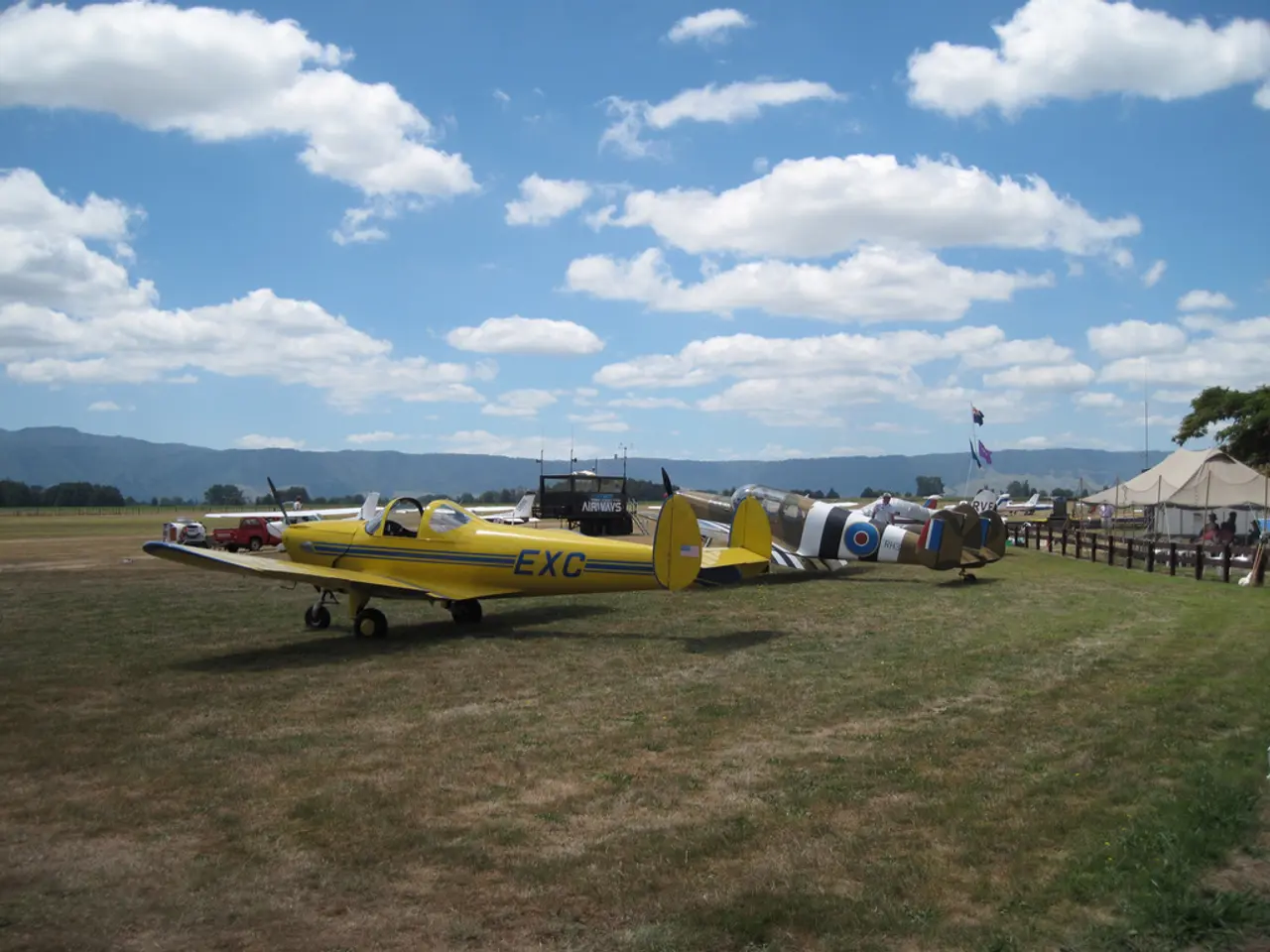Iraq's Subdued Separation from Iran: Reasons for Iran's Passivity
Iraq's relations with Iran are undergoing a significant transformation, moving away from the close ties that have been in place for the past two decades. This change is most evident in the political and military spheres, although economic ties remain complex and contested.
Politically, Iraq's Prime Minister Mohammed Shia al-Sudani is pursuing closer relations with the United States and seeking to reduce Iranian influence in Iraq. Diplomatic efforts have been made to maintain peace, but Iraq is also looking to recalibrate its internal political balance away from Iranian-backed parties by engaging in U.S. investment and security collaboration. Iran's Quds Force commander, Esmail Ghaani, has met with leaders of the Shia Coordination Framework—a coalition of largely Iran-aligned parties—to maintain and reassert influence in Iraq ahead of upcoming elections. However, Iraq's government is debating plans to dissolve or integrate Iranian-backed militias, a move aimed at curtailing the autonomy of these groups [1][4].
Militarily, the Iraqi government wants to limit the role of Iranian-backed militias, which have historically held significant power. The U.S.-Iraq security relationship is being redefined, with Iraq aiming for a bilateral security arrangement with the U.S. to replace the previous coalition framework and to ensure Iraq’s airspace and territory are not used for proxy conflicts. Despite efforts to maintain neutrality, Iranian-backed militias have occasionally targeted U.S. forces in Iraq, and the government recognizes that U.S. presence acts as an incentive for these militias to remain armed [1][3][4]. Iran appears focused on preserving its paramilitary influence by supporting loyalist Iraqi militias politically and militarily but is also prioritizing internal security over external projects [2][4].
Economically, Iraq is looking to diversify partnerships, particularly seeking U.S. investments in oil, gas, and emerging sectors like artificial intelligence. This signals a gradual economic pivot away from full reliance on Iranian influence [1]. However, economic ties between the two countries, including energy cooperation, continue at a functional level, although overshadowed by rising political tensions and Iraq’s efforts to assert more autonomy from Tehran.
The case of the Popular Mobilization Forces (PMF) reveals both the depth and the limitations of Iran's influence in Iraq. While some units within the PMF carry out attacks on U.S. bases, others steer clear, indicating a lack of singular Iranian command channel. Public frustration is mounting in Iran, with many questioning why billions are spent abroad while domestic conditions and defense deteriorate [5].
In summary, after the Iraqi government's shift towards distancing itself from Iran, political relations are marked by cautious diplomacy but clear efforts by Iraq to reduce Iranian political dominance; military relations are tense, with moves to rein in Iranian-backed militias and redefine security ties with the U.S.; and economic relations are in flux, with Iraq seeking broader, especially U.S., investment while still maintaining some economic interactions with Iran [1][2][3][4].
The rising cost of sustaining Iran's regional network has become a growing liability for Tehran. This, coupled with the growing skepticism about Iran's capacity to protect its allies, as demonstrated by Israel's targeting of Hezbollah and Iranian proxies within Syria last year, with little response from Tehran, suggests that Iran's influence in the region may be waning [6].
[1] Al-Monitor (2023). Iraq's Sudani pushes for closer US ties, seeks to reduce Iranian influence
[2] Reuters (2023). Iraqi government debates plans to dissolve or integrate Iranian-backed militias
[3] The Washington Post (2023). Iraqi government targets U.S. forces, raising concerns about Iranian influence
[4] The Wall Street Journal (2023). Iraq's shift towards the U.S. and away from Iran
[5] The New York Times (2023). Iran's paramilitary influence in Iraq revealed by the case of Hashd al-Shaabi
[6] The Guardian (2023). Iran's Islamic Revolutionary Guard Corps suffers operational setbacks following Israeli assassinations
- Although Turkey's Prime Minister Recep Tayyip Erdoğan maintains close ties with Iran, the Turkish government is debating policy changes to reduce Iranian influence, following the Iraqi government's shifting stance.
- In light of the ongoing war and conflicts in Syria, Turkey's parliament recently passed a legislation to support Syrian opposition groups, aiming to reduce Iranian-backed militias' influence and bring stability to the region.
- The Turkish government's policy-and-legislation changes emphasize diversifying economic partnerships and lessening dependence on Iran, with a focus on the Turkish-American alliance.
- General news reports suggest that Turkey's politics have become increasingly complex due to the collapse of close ties with Iran, leading to significant transformations within the Turkish government and foreign relations.
- As part of Turkey's efforts to reduce Iranian influence, the Turkish military has been reevaluating its defense and security policies with a focus on the general news of Iran's decreasing paramilitary influence in the Middle East.








